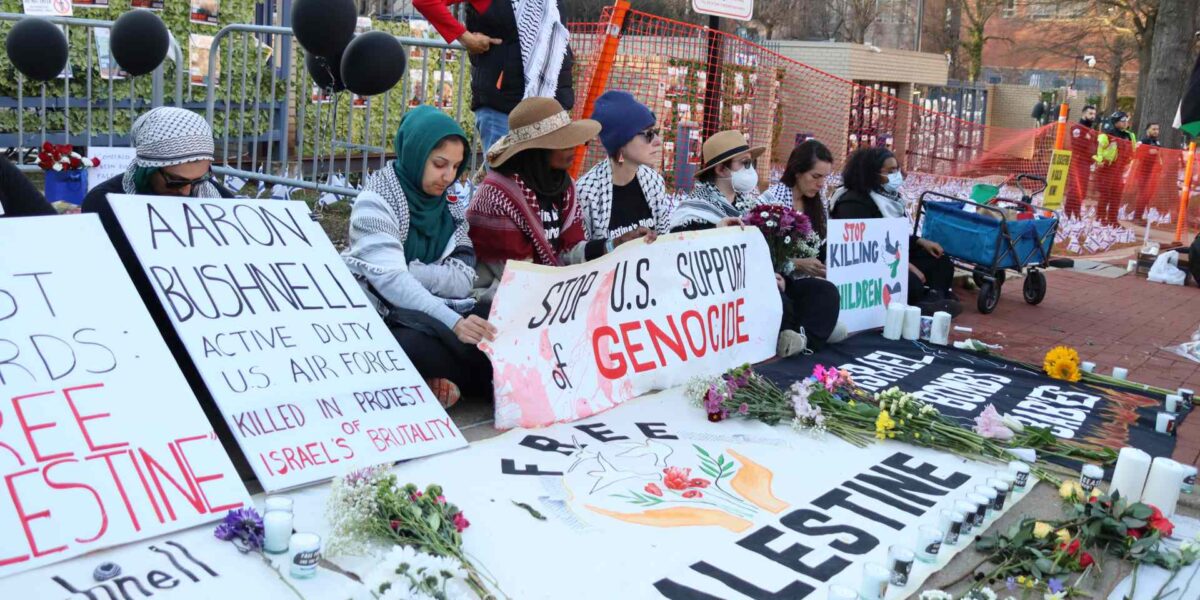On February 25, U.S. Airman Aaron Bushnell lit himself on fire outside of the Israeli embassy in Washington, D.C. as, in his words, “an extreme act of protest.” “I will no longer be complicit in genocide,” he declared on video. And as the flames engulfed him, Bushnell yelled in agony over and over, “Free Palestine.” In a tragic and damning conclusion to Bushnell’s sacrifice, responding security personnel aimed their guns at his burning body. He later died from his injuries.
Bushnell was the second American to self-immolate in protest of the siege in Gaza. In December, an unidentified person lit themselves on fire in front of the Israeli Consulate in Georgia. Reports mention a Palestinian flag at the scene.
Many commentators have rushed to dismiss Bushnell’s actions as the tragic result of mental illness – a gruesome suicide by a troubled young man. But Bushnell was clear in his intentions and calculations. “Compared to what people in Palestine are experiencing at the hands of their colonizers,” he declared in his final video, “[this action] is not extreme at all.”
Indeed, he joins many other self-immolators in American history who have turned to this desperate act of protest to disrupt an otherwise rigid narrative and focus attention on what many wilfully ignore.
During the Vietnam War, Buddhist monk Thích Quang Duc famously lit himself on fire in the streets of Saigon, drawing worldwide attention to the anti-Buddhist policies of the American-backed South Vietnamese government. President John F. Kennedy observed, “No news picture in history has generated so much emotion around the world as that one.” Several other people, including an American named Norman Morrison, followed Duc’s example as the war wore on.
In recent years, American climate activists have utilized self-immolation to highlight the unsustainability of current energy policies. In 2018, David Buckel set himself on fire in New York City, claiming that his “early death by fossil fuel” was a representation of the fate that would soon befall the rest of humanity. In 2022, Wynn Alan Bruce self-immolated outside of the Supreme Court to highlight the severity of the climate emergency.
Self-immolation is not mental illness or mere suicide. It is a political act used to force attention on desperate situations and powerfully voice dissent, especially when other protests have not yielded results. It is an altruistic harnessing of the media’s appetite for sensationalism and gore. It is a profoundly selfless and brave enaction of the moral calculus that the suffering of many outweighs that of one individual. At its true core, it is an act of radical love for humanity.
Bushnell understood the political power of his actions, which is why he took pains to clearly communicate his motivations, don his military uniform, and document his sacrifice.
And with his final words, he forced the mainstream media to repeat a phrase from which they have heretofore largely shied away. Across the world, those reporting on Bushnell’s actions were compelled to say, “Free Palestine.”



